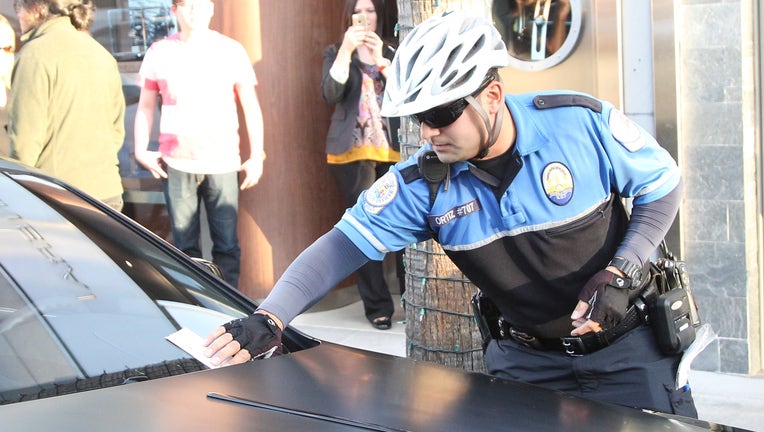Los Angeles City Council votes to resume normal parking enforcement Oct. 15

A traffic officer places a ticket on the car of Kim Kardashian on January 06, 2014 in Los Angeles, California. (Photo by Pixplus/Bauer-Griffin/GC Images) (Getty Images)
LOS ANGELES - Relaxed parking enforcement measures brought on by the COVID-19 pandemic are scheduled to end Oct. 15, under action taken Wednesday by the Los Angeles City Council.
The city will resume parking enforcement and impounds when applicable for street cleaning, abandoned vehicles, oversize and overnight restrictions, peak-hour and anti-gridlock zones, and expired vehicle registration.
Normal parking enforcement had been tentatively slated to resume on Thursday, but Councilman Joe Buscaino submitted an amendment to delay the enforcement and use the next two weeks to educate the public on the city's policy.
On Oct. 15, the city will resume enforcement of expired preferential parking district permits. The council suspended imposing new citation late penalties until Oct. 22.
Buscaino's amendment also delays when the city will impound vehicles when someone is living in them and instructs the Los Angeles Department of Transportation report to the City Council in 30 to 60 days with a plan for the next steps.
People can report abandoned vehicles on their streets by calling 1-800- 222-6336.
Get breaking news alerts in the FOX 11 News app. Download for iOS or Android.
Mayor Eric Garcetti extended relaxed parking enforcement across Los Angeles in August to make it easier for Angelenos to stay home whenever possible without being concerned about getting a ticket.
According to the LADOT, in the last fiscal year, prior to the COVID-19 state of emergency, the department projected parking citation revenue to reach about $135 million annually or an average of $11.25 million per month.
For this fiscal year, if conditions remain the same with reduced parking enforcement and officers deployed, LADOT estimates parking citation revenue will be between $55 million and $60 million, or $4.5 million to $5 million per month.

